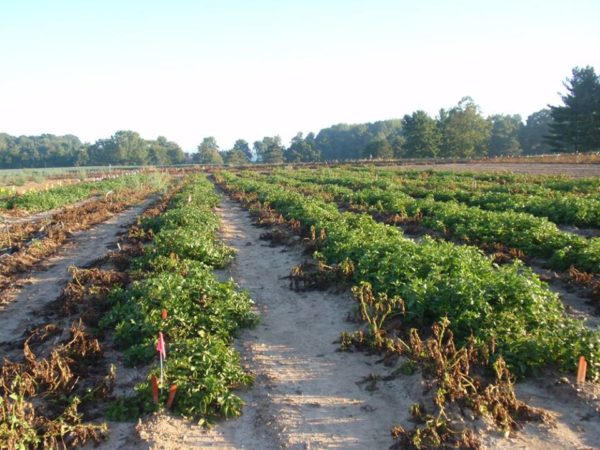
With little fanfare, the Maine Board of Pesticides Control unanimously approved on Friday morning the registration of three new types of genetically engineered potatoes that have been developed by a major Idaho agribusiness company.
The move means that the J.R. Simplot Co.’s Russet Burbank, Ranger Russet and Atlantic potatoes could be planted in Maine fields at any time. These potatoes were created by adding genes from a wild potato plant and are designed to be resistant to late blight, the disease that caused the mid-19th century Irish Potato Famine and which remains a problem today. But genetically modified crops have been controversial in the past. Critics of the process say that won’t be any different for the Simplot potatoes, the second generation to be sold under the brand name Innate, although company officials say otherwise.
“Once people understand that it’s [potato-to-potato], they soften,” Sharie Fitzpatrick, a senior biotech regulatory manager at Simplot, said Monday after the board meeting. “It doesn’t hit the same sort of emotional triggers.”
However, Jim Gerritsen of Wood Prairie Family Farm in Bridgewater, who sells organically grown seed potatoes to customers in all 50 states from his Aroostook County farm and who has been a longtime opponent of genetically engineered crops, disagrees.
The County is pleased to feature content from our sister company, Bangor Daily News. To read the rest of “Genetically engineered potatoes approved for Maine,” an article by contributing Bangor Daily News staff writer Abigail Curtis, please follow this link to the BDN online.







